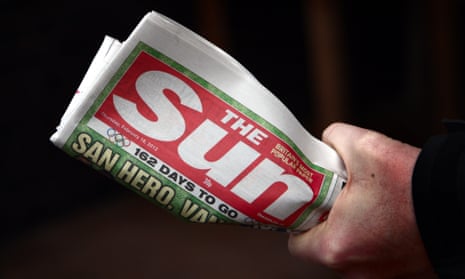Hateful words can have hateful consequences. Experts have repeatedly warned that the drip-drip of negative stories in the UK press about migrants, Muslims and other groups has fuelled hate crime on our streets. The situation has become so extreme that UK newspapers have been called out by the United Nations over their coverage.
This week, in an article about Brexit and immigration, the Sun columnist Trevor Kavanagh cites the horrific sexual abuse cases in Rotherham to suggest that “Muslims are a specific rather than a cultural problem”. He concludes by asking “What will we do about The Muslim Problem”.
One of the hallmarks of extremism is a tendency to project guilt onto a whole community for the crimes of individuals within that group. Calling an entire section of our society a “problem” is not just divisive, it risks legitimising hatred towards anyone who happens to be a member of that community. It should go without saying that it’s possible to discuss – and address – the appalling crimes committed in Rotherham, without implying that the Muslim community as a whole is at fault.
But Monday’s article by the paper’s former political editor is just the latest in a series of Sun stories targeting British Muslims. Last year the newspaper was forced to correct a “significantly misleading” front page claiming that one in five British Muslims had sympathy with jihadis.
Months later, columnist Kelvin MacKenzie provoked outrage with an article attacking newsreader Fatima Manji – which reportedly left several Sun staff “embarrassed and ashamed”. After the industry-run regulator Ipso rejected a complaint against MacKenzie for discrimination and harassment, Kavanagh – who sits on Ipso’s board – then used his Sun column to ridicule Manji for complaining about Mackenzie’s piece.
Miqdaad Versi of the Muslim Council has documented a series of inaccurate stories about Muslims by the Sun and other papers. Many have been corrected through his efforts – but by the time the piece is retracted the damage has already been done.
This week’s Sun article has provoked renewed concern among British Muslims. Tahmid Islam of youth campaign group Stand Up Stand Out tells me that Kavanagh’s piece “boxes my community and the communities that I work with into a totally misleading category… Communities and I myself are scared about the repercussions we face”.
The state of our press has been so bad – for so long – that all of this can start to seem normal, even inevitable. But it can only continue while the advertisers that fund our media turn a blind eye. While the Sun may be impervious to public pressure, the brands we shop with do care what their customers think.
If you have an internet connection then the chances are you’re a customer of a company that funds the Sun through its advertising. Most UK supermarkets – and all the big mobile phone providers – have advertised in the Sun within the last few weeks. On Monday, adverts for both EE and O2 were actually appearing on the online version of the Sun’s “Muslim Problem” article. In the past year both Lego and the Body Shop have pulled their promotions from the Daily Mail over concerns about its coverage, while other companies have made changes behind the scenes.
The Sun – for understandable reasons – likes to characterise any challenge to its commercial interests as a threat to freedom of expression. But Voltaire never said “I’ll defend to the death your right to get advertising revenue”. Trevor Kavanagh’s freedom to speak his mind does not oblige the rest of us to subsidise his opinions.
And as people concerned about the impact of the Sun’s hostile coverage on our society, we also have a right to express our views. If enough of us speak out now, and urge the companies we shop with to suspend their advertising with the Sun, this could provide a much-needed wake up call.
Richard Wilson is the director of Stop Funding Hate
